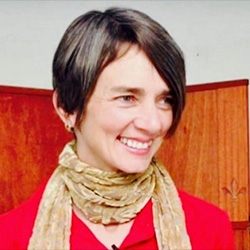

NVC Resources on Feelings
-
Practice making requests for feedback, clarity, and action. Opportunities for making requests might be when you expected something different from what you got, were treated undesirably, and noticed inner constriction or reactivity. Identify observations, feelings, and values to support finding the request. Ensure your request states what you want, is specific, names the present-tense action, and that you're open to feedback.
-
For this exercise choose a situation in which you have said a “yes” to someone‛s request but you didn't experience your “yes” as given freely or joyfully. Then explore judgements, feelings, needs, and alternate strategies that come up in relation to your “yes”, your “no”, and in relation to what the other person might be experiencing.
-
In this exercise choose a situation in which you got a “yes” to your request but you are not confident that it was agreed to freely or joyfully. Then explore your response to their “yes”, and possible unexpressed "no", with related observations, judgements, feelings, needs, requests, and alternate strategies that come up.
-
Use this exercise to stay in dialogue and connect to needs while facing a “no”. Identify a situation where you have low confidence that you'll get your needs met, and it'll be hard hearing a “no” to your request. Explore your response to the “no” by working with feelings, needs, request and alternate strategies. Thus you can work towards meeting your needs while also releasing the idea that your needs “have to” be met.
-
Judging or criticizing others indicates pain, unmet needs and a coping strategy. It distracts you from yourself and can give you the illusion of control. You may think you see more than they do, imagining criticism will bring change. But even a correct analysis won’t inspire change if they hear criticism. Instead, the moment you notice judgments or criticism turn towards yourself with compassion. What are your feelings and needs?
-
Anger matters because it can let you know that you perceive a threat to universal need for yourself or someone else. It can draw your attention to something so that you can take effective action. Anger becomes a hindrance when you amp it up with your thoughts about what should(n't) happen. Instead, notice any "should" thoughts, see anger as a signal, accept that it's okay to have it, and look for feelings and needs underneath it.
-
When you attempt to make a request what limiting beliefs come up? See if you recognize any from this list. Then compassionately observe your body sensations, impulses, feelings, needs, memories, energy, and images. In making the request ensure your request is connected to your needs, is doable, what you want, and not attached to them saying yes.
-
Awareness of how we're holding our own and others' needs is important to our development. In learning to value needs, we often go through three stages: passive, aggressive/obnoxious, and assertive/mutual. As we learn and grow, we may relate to the following differently: Whose feelings and needs are important, who is responsible for what, how our choices impact others, and consideration for ourselves and others.
-
Relationship repair means building connection and care after disconnect and unmet needs. It requires intention to connect and take responsibility for your behavior by naming what didn’t work, offering empathy, and making a plan to do something differently next time. When you have enough empathy to find care and curiosity for them, reflect the other person's observation, thoughts, feelings, needs and requests. Focus on this more than on details of the event.
-
Hearing actions that lead to living beings' harm, you may notice that some people believe that the needs of some must come at the cost of others. This view arises from fear and an economic system meant to promote and feed off false scarcity. When struggling with this, grieve, receive support, and notice your feelings show you certain values matter to you. From this sense of purpose you can find where you can be of most service.
Quick Links

Stay in Touch!
We value your privacy, won't share your email address and you can easily unsubscribe any time.










